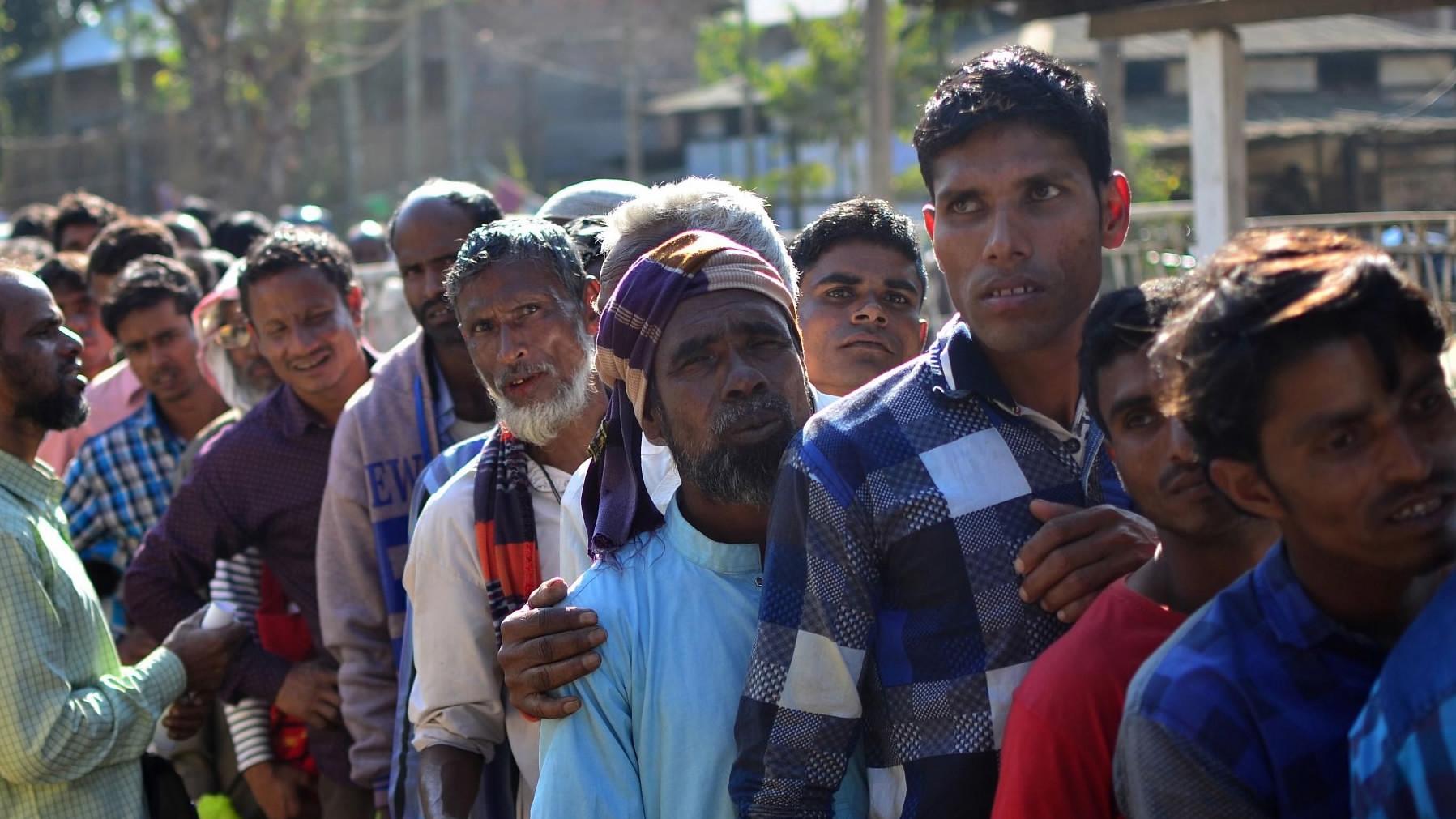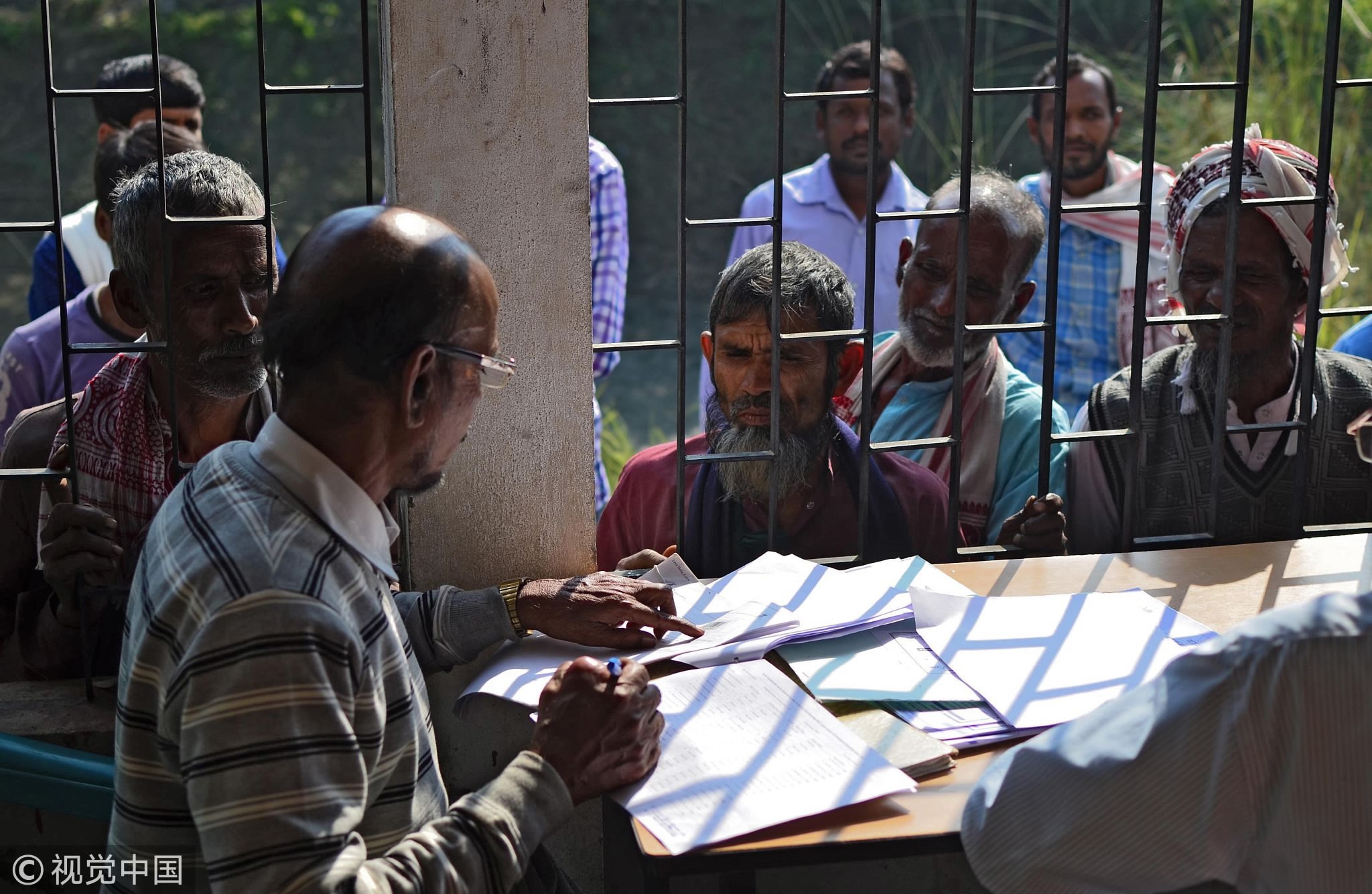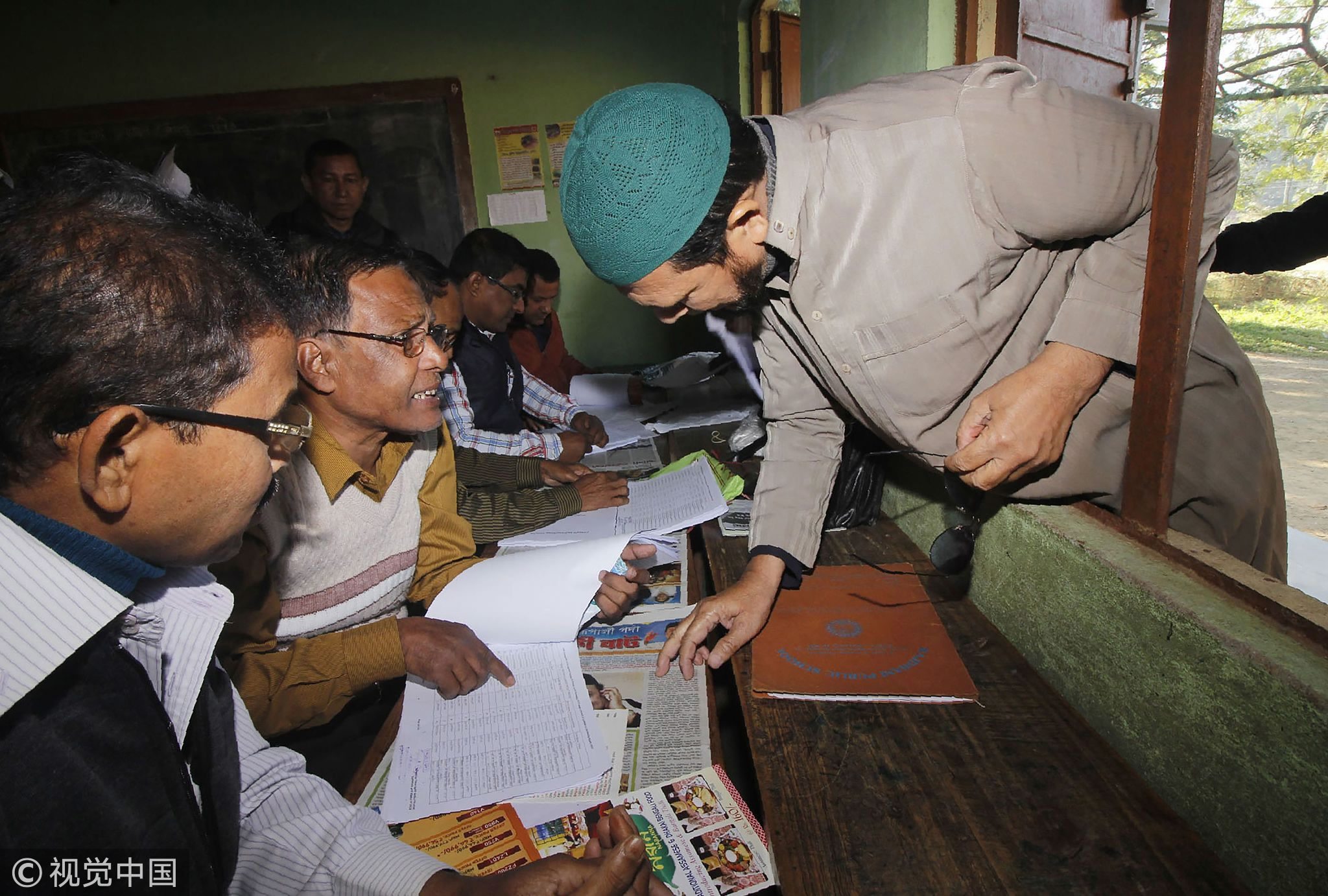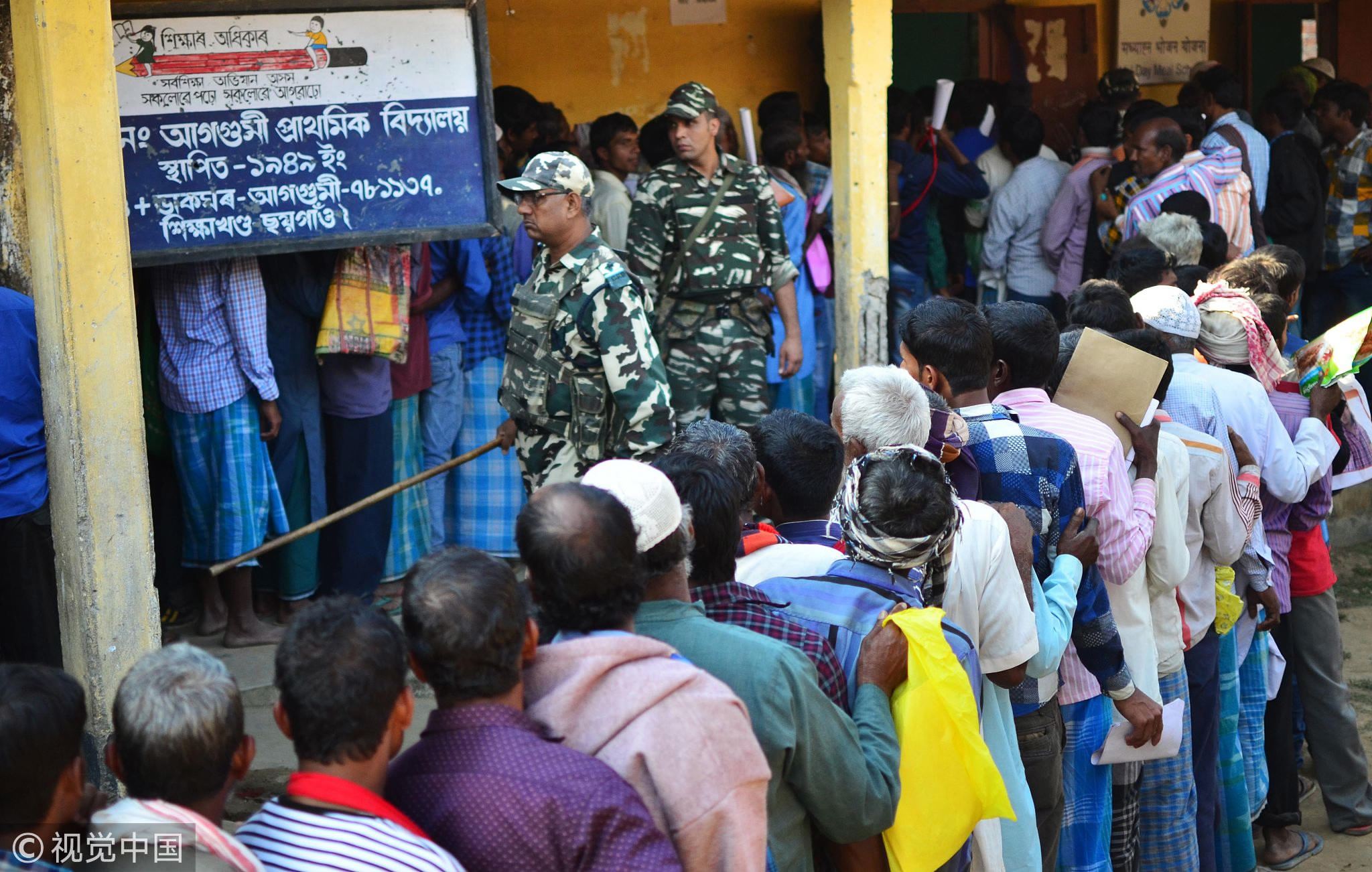
World
17:45, 29-Mar-2018
Stateless in Assam: five million in India face Rohingya-like fate
By Abhishek G Bhaya

Close to five million people in India’s northeastern state of Assam face the threat of being rendered stateless, with top government officials claiming they are illegal Bangladeshi immigrants and Dhaka not yet open to accepting deportation, while dubbing the matter as “India’s internal politics”.
The risk came as India’s Supreme Court on Tuesday refused to extend the May 31 deadline for publishing the final draft of the National Register of Citizens (NRC) in Assam, one of the world’s largest and most complex efforts to determine the rightful citizens in the state. The top court also gave Assam's government a June 30 deadline to complete the verification process.
Ahead of the publication of a preliminary list on Saturday, Prateek Hajela, a senior government official tasked with coordinating NRC’s mission, told the media that about 4.8 million people have failed to provide the appropriate legacy document. This is the second time that a preliminary list is being published; the first part of the draft was made public on the midnight of December 31, 2017 this year.

People wait to check their names on the first draft of the National Register of Citizens (NRC) at Goroimari of Kamrup district in the Indian state of Assam on January 1, 2018. /VCG Photo
People wait to check their names on the first draft of the National Register of Citizens (NRC) at Goroimari of Kamrup district in the Indian state of Assam on January 1, 2018. /VCG Photo
The effort to update NRC is the first to be undertaken in nearly six decades and, according to authorities, is aimed at detecting and deporting undocumented immigrants from Bangladesh. Assam has a population of nearly 34 million, a third of which are Muslims.
Over the last five years, officials have processed nearly 66 million documents, from birth, school, college certificates to electoral rolls to land and local-government records submitted by 34 million people. To be recognized as Indian citizens, they must be able to prove that they or their family lived in the country before March 24, 1971.
“In Assam, you are a citizen by descent,” Hajela had previously told IndiaSpend, a data journalism portal. “In the rest of India, you are a citizen by birth.”
Anti-migrant sentiment
Analysts have however pointed out that the move threatens to make Muslim citizens and long-term refugees of Bangladeshi origin stateless, in a case similar to Myanmar's treatment of its Rohingya minority.
Prime Minister Narendra Modi’s Hindu nationalist Bharatiya Janata Party (BJP) came to power in Assam in 2016 on the plank of expelling illegal immigrants from the state.
"The NRC is being done to identify illegal Bangladeshis residing in Assam. All those whose names do not figure in the NRC will have to be deported," BJP leader and Assam's finance and health minister Himanta Biswa Sarma, told reporters.

A man looks for his name on the first draft of the National Register of Citizens (NRC) in Guwahati in the Indian state of Assam on January 1, 2018. /VCG Photo
A man looks for his name on the first draft of the National Register of Citizens (NRC) in Guwahati in the Indian state of Assam on January 1, 2018. /VCG Photo
Sarma said Hindu refugees will be allowed to remain in India in line with BJP’s stated policy to shelter Hindus who face persecution in their home countries.
“We want the Bengali-speaking Hindus to remain with the Assamese people. That is the BJP’s viewpoint. It has not changed. It has been the same, both before and after elections,” said Sarma.
“After all, the country was divided in the name of religion. Thus it is not a new thing,” he added, referring to the partition of India in 1947 into a Hindu-majority secular India and Muslim-majority Pakistan (Bangladesh was known as East Pakistan following the partition before it gained independence in 1971).
Tens of thousands of refugees – both Muslims and Hindus – fled to India from Bangladesh during its war of independence from Pakistan in the early 1970s. Most of them settled in Assam and the neighboring state of West Bengal, where there are similar demands to send back illegal Muslim immigrants.
Assam has long witnessed unrest due to the simmering anti-migrant sentiment in the border state. Hundreds of people were killed in anti-immigrant violence through the 1980s, which compelled the government to ink the 1985 accord with the protesters. The pact declares anyone who entered the state without documents after March 24, 1971, to be an alien.
Dhaka won't accept deportation

People stand in line to check their names on the first draft of the National Register of Citizens (NRC) at Gumi village of Kamrup district in the Indian state of Assam on January 1, 2018. /VCG Photo
People stand in line to check their names on the first draft of the National Register of Citizens (NRC) at Gumi village of Kamrup district in the Indian state of Assam on January 1, 2018. /VCG Photo
Bangladesh, meanwhile, has hinted that it may not accept deportation of individuals from Assam just on the basis of NRC, the Economic Times reported last week citing a statement from Information Minister Hasanul Haq.
“There was no border fence between Assam and Bangladesh because the area was inaccessible. So, it is not possible for Bangladeshis to settle in that region in Assam,” the Bangladeshi minister was quoted as saying.
“No question of deportation arises if there is no Bangladeshi settlement in the region,” he said, adding however that the matter has not been discussed between both the sides yet.
“We consider NRC in Assam as part of India’s internal politics, especially state politics. And we chose to ignore the developments. We remained silent as there had been no communication from the government of India in this regard. We are not concerned about the political developments and policies in Assam state,” Haq said.
[Cover Photo: People stand in line to check their names on the first draft of the National Register of Citizens (NRC) at Gumi village of Kamrup district in the Indian state of Assam on January 1, 2018. /VCG Photo]
2733km

SITEMAP
Copyright © 2018 CGTN. Beijing ICP prepared NO.16065310-3
Copyright © 2018 CGTN. Beijing ICP prepared NO.16065310-3